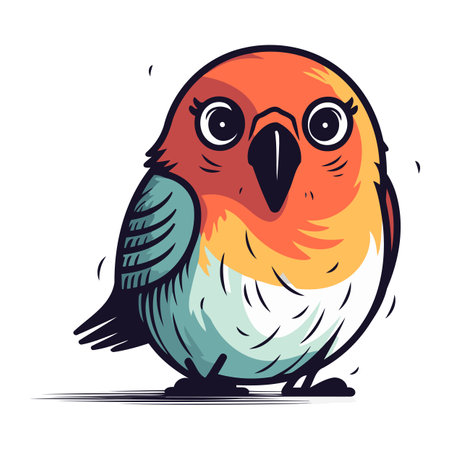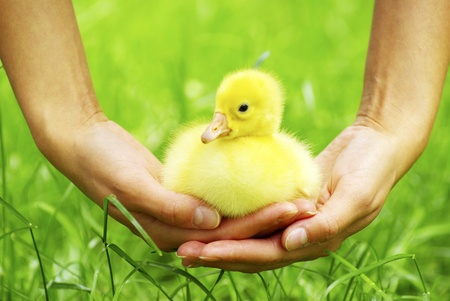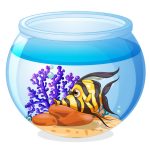Introduction to Homemade Bird Food
Providing your pet birds with a nutritious diet is essential for their health and well-being. While store-bought bird food is convenient, it often contains preservatives, artificial additives, and fillers that may not be the best option for your feathered friends. Making homemade bird food allows you to control the ingredients, ensuring a fresh, wholesome, and balanced diet tailored to your birds specific needs.
Why Choose Homemade Bird Food?
There are several benefits to preparing bird food at home rather than relying on commercial options:
- Healthier Ingredients: You can use natural, high-quality ingredients without harmful additives or preservatives.
- Better Nutrition: Homemade recipes allow you to include a variety of seeds, grains, fruits, and vegetables that provide essential vitamins and minerals.
- Customizable Diet: Different bird species have unique dietary needs, and homemade food lets you tailor meals accordingly.
- Cost-Effective: Buying bulk ingredients and making bird food at home can be more affordable in the long run.
- Freshness & Quality Control: You know exactly what goes into your bird’s food, ensuring freshness and quality.
Comparing Store-Bought vs. Homemade Bird Food
The table below highlights some key differences between commercial bird food and homemade options:
| Feature | Store-Bought Bird Food | Homemade Bird Food |
|---|---|---|
| Additives & Preservatives | Often contains artificial additives and preservatives | No artificial additives; made from fresh ingredients |
| Nutritional Value | May lack variety; some brands use fillers | Diverse and nutrient-rich ingredients |
| Taste & Freshness | Shelf-stable but may lose freshness over time | Made fresh with natural flavors |
| Suitability for Different Birds | A one-size-fits-all approach | Easily customizable for specific species |
| Cost Efficiency | Might be expensive for high-quality brands | A more budget-friendly option in the long run |
Main Ingredients for Homemade Bird Food
A balanced diet for pet birds should include a mix of seeds, grains, fruits, vegetables, and proteins. Here are some common ingredients used in homemade bird food:
Nutrient-Rich Seeds & Grains:
- Millet: A favorite among many bird species.
- Safflower Seeds: High in healthy fats and protein.
- Brown Rice: Provides essential carbohydrates.
- Cornmeal: A good source of energy.
- Pumpkin Seeds: Rich in beneficial nutrients.
Bird-Safe Fruits & Vegetables:
- Berries (Blueberries, Strawberries): Loaded with antioxidants.
- Diced Apples (No Seeds): A tasty vitamin-rich treat.
- Sliced Carrots: Great for eye health due to beta-carotene.
- Kale & Spinach: Packed with vitamins A, C, and K.
- Papaya:Helps digestion with natural enzymes.
Nutritional Protein Sources:
- Cooked Eggs (Scrambled or Boiled):A great source of protein.
- Cottage Cheese (In Small Amounts):A calcium-rich supplement.
- Lentils & Chickpeas (Cooked & Softened): A good plant-based protein source.
Getting Started with Homemade Bird Food
Now that you understand the benefits of homemade bird food and the essential ingredients to use, its time to start preparing nutritious meals for your pet birds! In the next section, we’ll explore simple recipes that you can make at home to keep your feathered friends happy and healthy. Stay tuned!
2. Essential Ingredients for a Balanced Bird Diet
Providing your feathered friend with a well-balanced diet is essential for their health and longevity. A nutritious bird diet includes a mix of seeds, fruits, vegetables, and proteins. Let’s explore some key ingredients that can help keep your bird happy and healthy.
Seeds: A Staple in Bird Nutrition
Seeds are a fundamental part of many birds diets. However, it’s important to offer a variety rather than relying on just one type. Below is a list of commonly used seeds:
| Seed Type | Nutritional Benefits |
|---|---|
| Sunflower Seeds | Rich in healthy fats and vitamin E |
| Millet | A good source of carbohydrates and fiber |
| Safflower Seeds | Packed with protein and unsaturated fats |
| Pumpkin Seeds | High in antioxidants and essential fatty acids |
Fruits: Natural Sweetness and Vital Nutrients
Fresh fruits provide essential vitamins and hydration for birds. Here are some bird-friendly fruits:
- Berries: Blueberries, strawberries, and raspberries are rich in antioxidants.
- Apples: A great source of fiber and vitamin C (remove the seeds as they can be toxic).
- Pears: Soft and easy to eat, providing hydration and minerals.
- Mangoes: High in vitamin A, promoting good vision and immune health.
- Papaya: Contains digestive enzymes that support gut health.
Vegetables: Essential Vitamins for Stronger Health
Add a variety of vegetables to ensure your bird gets enough vitamins and minerals. Some great options include:
- Carrots: High in beta-carotene for eye health.
- Kale & Spinach: Packed with calcium and iron.
- Bell Peppers: Loaded with vitamin C for immune support.
- Zucchini: Light and hydrating with essential nutrients.
- Sweet Potatoes: A great source of fiber and vitamin A.
Proteins: Supporting Growth and Energy
A balanced bird diet should also include proteins. Here are some excellent protein sources:
- Cooked Eggs: A great source of protein and essential amino acids.
- Nuts (Unsalted): Almonds, walnuts, and pecans provide healthy fats and proteins.
- Lentils & Beans (Cooked): Rich in plant-based protein.
- Cottage Cheese: A small amount can provide calcium and protein.
- Dried Mealworms: Excellent for birds that need extra energy.
A well-rounded bird diet combines these ingredients in moderation to ensure a variety of nutrients. By incorporating different seeds, fruits, vegetables, and proteins into homemade bird food recipes, you can promote better overall health for your pet bird.

3. Simple and Healthy Bird Food Recipes
Providing your feathered friends with homemade meals ensures they get the best nutrition without unnecessary additives. Here are some simple and healthy bird food recipes that are easy to prepare and packed with essential nutrients.
Seed Mix Blend
A well-balanced seed mix is a great staple for most pet birds. You can customize it based on your bird’s preferences and dietary needs.
| Ingredient | Quantity |
|---|---|
| Sunflower Seeds (unsalted) | 1 cup |
| Pumpkin Seeds (raw, unsalted) | 1/2 cup |
| Millet | 1/2 cup |
| Safflower Seeds | 1/4 cup |
| Dried Fruits (no sugar added) | 1/4 cup |
Instructions:
- Mix all ingredients in a large bowl.
- Store in an airtight container to keep fresh.
- Scoop out portions as needed for feeding.
Fresh Fruit and Veggie Medley
This recipe provides essential vitamins and minerals while adding variety to your bird’s diet.
| Ingredient | Quantity |
|---|---|
| Diced Apples (no seeds) | 1/2 cup |
| Diced Carrots | 1/2 cup |
| Sliced Grapes (seedless) | 1/4 cup |
| Diced Bell Peppers (any color) | 1/4 cup |
| Diced Leafy Greens (spinach, kale) | A handful |
Instructions:
- Wash all fruits and vegetables thoroughly.
- Dice them into small, bite-sized pieces.
- Toss everything together in a bowl.
- Serve fresh or refrigerate for up to 24 hours.
Nutrient-Packed Oatmeal Treat
This warm meal is perfect for colder days and provides energy-boosting nutrients for your birds.
Ingredients:
- 1/2 cup plain cooked oatmeal (no sugar or milk)
- 1 tablespoon chia seeds or flaxseeds
- A few mashed blueberries or strawberries
- A pinch of crushed nuts (unsalted, no almonds)
Instructions:
- Create plain oatmeal using water only.
- Add the chia seeds, mashed berries, and crushed nuts.
- Mash everything together until well mixed.
- Spoon out small portions and allow to cool before serving.
Your birds will love these delicious and nutritious homemade meals! Feel free to experiment with different ingredients to see what your feathered companions enjoy the most while ensuring they receive a balanced diet.
4. Foods to Avoid for Bird Health
When preparing homemade meals for your pet bird, it’s important to know which foods can be harmful or even toxic. Some ingredients that are safe for humans can cause serious health problems for birds. Below is a list of common foods that should be avoided.
Common Toxic Foods for Birds
Certain foods contain substances that can be poisonous to birds, leading to digestive issues, organ failure, or even death. Make sure these items never make their way into your bird’s diet.
| Food | Reason to Avoid |
|---|---|
| Avocado | Contains persin, which is toxic and can cause heart failure. |
| Chocolate | Contains theobromine and caffeine, which are highly toxic to birds. |
| Caffeine (Coffee, Tea, Soda) | Affects the nervous system and heart rate, potentially causing death. |
| Onions & Garlic | Can cause digestive irritation and damage red blood cells. |
| Xylitol (Artificial Sweetener) | Toxic to birds and can lead to liver failure. |
| Dairy Products | Birds lack the enzymes to digest lactose properly. |
| Sugary & Salty Snacks | Sodium and excess sugar can cause dehydration and other health issues. |
| Dried Beans | Contain toxins like hemagglutinin that must be removed through cooking. |
| Mushrooms | Certain varieties can cause digestive upset or toxicity. |
| Pits & Seeds from Fruits (e.g., Apples, Cherries, Peaches) | Might contain cyanide compounds that are dangerous for birds. |
Avoid Processed and Junk Foods
Avoid giving birds processed foods such as chips, candy, fried foods, or fast food. These often contain excessive salt, sugar, artificial additives, and unhealthy fats that can negatively impact your birds health over time.
Pesticides and Contaminants in Fresh Produce
If youre feeding your bird fresh fruits and vegetables, always wash them thoroughly to remove any pesticides or chemicals. Organic options are preferable when possible to minimize exposure to harmful substances.
The Importance of a Safe Diet
Your bird’s health depends on a well-balanced diet free from harmful ingredients. By avoiding these toxic foods and focusing on fresh, nutritious options, you’ll help ensure a long and healthy life for your feathered friend.
5. Tips for Storing and Serving Homemade Bird Food
Making homemade bird food is a great way to ensure your feathered friends get the best nutrition possible. However, proper storage and serving methods are essential to maintain freshness and prevent spoilage. Here are some helpful tips to keep your homemade bird food safe and nutritious.
How to Store Homemade Bird Food Properly
Proper storage helps preserve the quality of your bird food and prevents contamination. Follow these guidelines to keep it fresh:
| Storage Method | Best Practices |
|---|---|
| Airtight Containers | Use sealed glass or plastic containers to protect against moisture and pests. |
| Refrigeration | Keep perishable ingredients like fruits and vegetables in the fridge to extend freshness. |
| Freezing | If making large batches, freeze portions in zip-lock bags or containers for long-term use. |
| Avoid Humidity | Store dry ingredients in a cool, dry place to prevent mold growth. |
The Best Ways to Serve Homemade Bird Food
The way you serve bird food affects its nutritional value and appeal. Follow these tips for optimal feeding:
- Serve in Clean Dishes: Always use clean bowls or feeders to prevent bacteria buildup.
- Avoid Overfeeding: Provide small portions to prevent waste and ensure freshness.
- Diversify Ingredients: Rotate different recipes to give birds a balanced diet with varied nutrients.
- Monitor Consumption: Observe how much your birds eat daily and adjust servings accordingly.
- Discard Spoiled Food: Remove uneaten food after a few hours, especially wet or fresh items, to prevent bacterial growth.
Shelf Life of Different Bird Food Types
The shelf life of homemade bird food varies depending on the ingredients used. Heres a general guide:
| Type of Bird Food | Shelf Life (Approx.) | Storage Recommendations |
|---|---|---|
| Dried Seeds & Grains | 6-12 months | Airtight container in a cool, dry place |
| Nuts & Dried Fruits | 3-6 months | Airtight container; refrigerate for extended freshness |
| Cooked Grains (e.g., Rice, Quinoa) | 3-5 days | Refrigerate in a sealed container |
| Baked Treats (e.g., Seed Bars) | 1-2 weeks | Airtight container at room temperature or refrigerated |
| Mash Mixes (Fresh Fruits & Veggies) | 1-2 days | Refrigerate; discard leftovers quickly |
Avoiding Common Storage Mistakes
Poor storage can lead to spoiled food that may harm your birds. Avoid these common mistakes:
- No Proper Sealing: Always close lids tightly to prevent moisture from getting in.
- Ineffective Labeling: Label containers with dates so you know when it’s time to refresh supplies.
- Mold Growth: Check food regularly for signs of mold and discard anything that looks questionable.
- Pest Infestation: Keep food away from areas where rodents or insects might access it.
- Lack of Rotation: Use older batches first before opening new ones to minimize waste.
The Importance of Freshness for Bird Health
Your birds’ health depends on the quality of their diet. Stale or spoiled food can lead to digestive issues and malnutrition. By following these storage and serving tips, you can ensure they receive fresh, nutritious meals every day!


